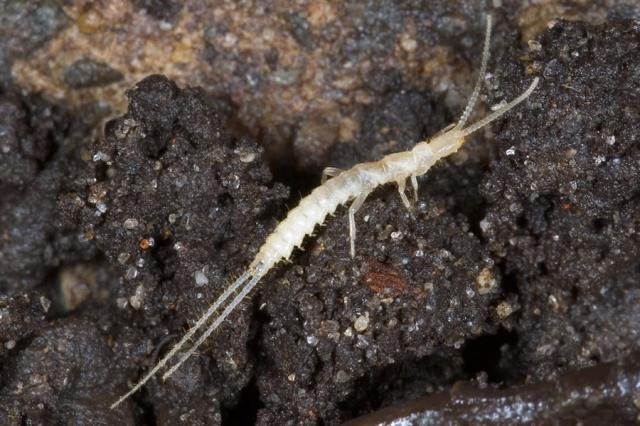Campodea are insects with long flexible antennae and a pair of elongated caudal appendages . The best-known species (Campodea staphylinus) has a wide distribution and is equally at home in the warm valleys of south Europe, in the subarctic conditions of mountain tops, in caves and in woods and gardens in England . It lives in damp places under stones, fallen trees or in rotten wood and leaves . Although blind, it immediately crawls away on exposure to the light into the nearest crevice or other sheltered spot, feeling the way with its antennae . Its action is characteristically serpentine, recalling that of a centipede . Campodea is one of the bristle-tailed or thysanurous insects of the order Aptera
Campodea fragilis is in the order Diplura that have long cerci and pale in color.This Hexapoda belong to the Campodeidae family. A Bristle-tail − length (3 to 5 mm). Body thin, flexible, translucent white to pale yellow. Tail appendages multisegmented, long and antenna like. Legs and abdominal styli well developed. Precise identification of this species requires examination of the setae. Males drop several spermatophores, about 200 a week, then the female picks it up with her genitalia. She then lays her eggs in the soil, and the eggs hatch in 12−13 days. C. fragilis is found worldwide, except Antarctica, found in loamy soil and rotting plants. The species is predacious and saprophagous- feeds on plant matter and dead insects.
Kingdom Animalia
Phylum Arthropoda
Subphylum Hexapoda
Class Entognatha
Order Diplura
Suborder Rhabdura
Superfamily Campodeoidea
Family Campodeidae
Subfamily Campodeinae
Genus Campodea
Species Campodea fragilis
Nature Spot
Insect Wiki
